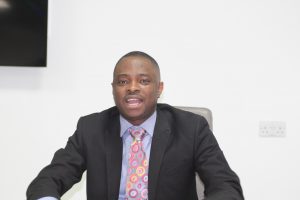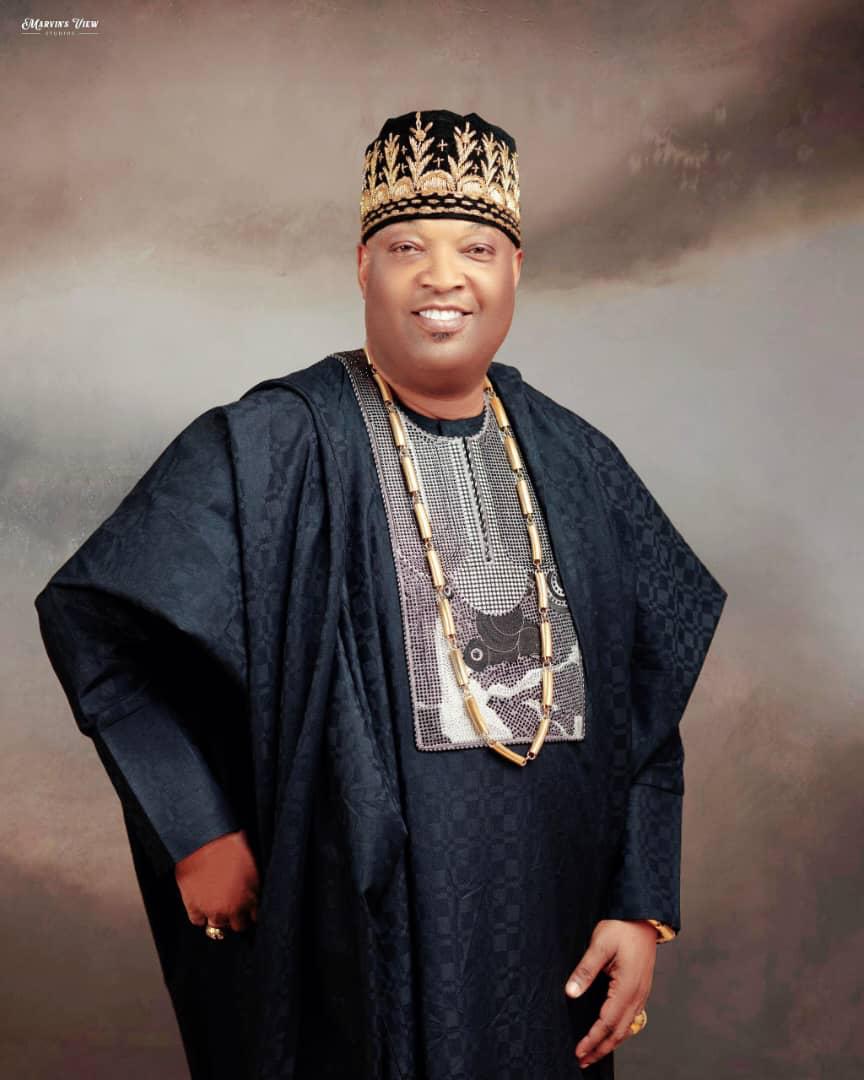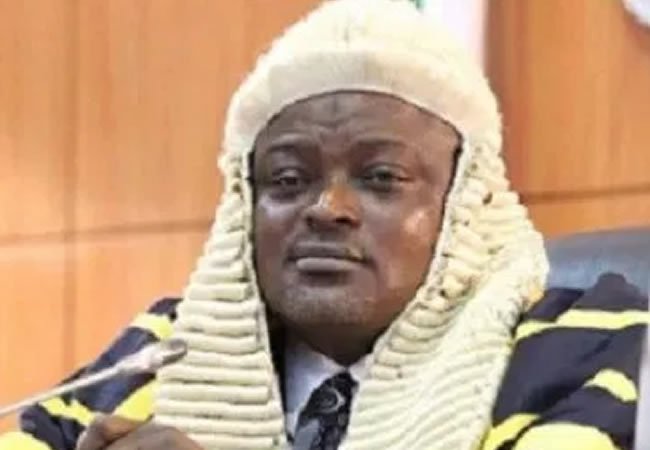Metro
Why Shutting Down Internet to Fight Kidnapping is Wrong

By Joel Popoola
Nigerians may not object to internet shutdowns to stop kidnapping. But did we object to SARS being set up to stop robbery?
No-one would object to the government doing everything in its power to stop the kidnapping gangs terrorising Nigeria’s northern regions and tarnishing our international reputation.
That’s why the residents of Zamfara seem to be broadly supportive of the week-long internet shutdown, initiated as part of a recent security crackdown.
More than nine million Zamfarans were cut off from the internet for several days, as security forces hunted for the kidnap-for-ransom squads who have been plaguing the areas.
“I’m in full support of the ban” one resident told CNN. “Before now, everyone has been living in fear because of the bandits.”
But no-one would object to the idea of specialist police unit being set up to tackle robbery either.
And we all know what happened with SARS.
Internet and social media shutdowns are becoming a more and more pervasive tactic of African leaders stemming and suppressing the flow of information and opinion online – commonly during elections.
These shutdowns are self-defeating, leading to more – not less –unrest, not to mention human rights violations (and international condemnations), elections lacking in credibility at home and abroad, and as we have seen with Nigeria’s disastrous attempts at banning Twitter – economic loss.
We cannot fall into the trap of accepting dangerous measures when they are deployed to deliver desirable ends. This makes it more likely we will instinctively accept if they are used to destroy democracy.
Think of it as frogs in boiling water. If you put a frog in boiling water it will jump out. If you put it in cold water and heat it to boiling it will do nothing until it is too late.
At the digital democracy campaign I lead we have previously called for Nigeria to show continental leadership and amend our constitution to guarantee that our citizens will never have their access to the internet unreasonably or unavoidably restricted.
We are doing that again now.
Nations such as Greece and Costa Rica have already taken this step. But we could be the first in Africa.
This simple move could have a profoundly positive impact on public trust in Nigerian democracy too – trust which study after study has shown to be worryingly low.
If you need proof, just look at the recently published results of a major survey conducted by the African Polling Institute.
The study found that 63% Nigerians scored Federal Government “poor” on fight against corruption and 53% of our citizens believe that impunity thrives in the current administration. 83% also believe impunity amongst government officials is ‘increasing’.
The survey also found social cohesion to be under average in Nigerian. And an internet-protection clause in our constitution could improve that too.
As I have previously said, just think of the impact if Nigerian politicians of all parties and ethnicities came together as one to say the same thing. In 2021, and beyond, internet access is a fundamental human right. And if we put that in our construction we are saying loudly and clearly this: Though we believe in different things, we are all committed to the same democratic values. And we are enshrining this value in law.
At the digital democracy campaign, our primary aim is to employ digital technology to improve Nigeria’s democracy.
We have created a free app – Rate Your Leader – which puts verified voters in direct contact with their elected leaders allowing them to build two-way relationships of trust and transparency and to work together to improve both our communities and our country.
Rate Your Leader lets politicians know what is happening in their areas and what matters most to the people who elect them. It also allows voters to get important information directly from local leaders.
If you have leaders that voters trust, feel connected to, believe share their values and who can demonstrate they are immediately responsive to the needs of the people who elect them, you can build a co-operative collaborative nation, united in the national interest.
This kind of two-way communication, built on honesty and transparency, is what unites us as a nation and let us work together to build a better future. This is the communication democracy needs in the digital age.
Not internet shutdowns.
Joel Popoola is a Nigerian tech entrepreneur, digital democracy campaigner and is creator of the free Rate Your Leader app. He can be reached via @JOPopoola
Metro
Senator Gbenga Daniel Celebrates Aare Adetola EmmanuelKing at 50

The distinguished Senator representing Ogun East Senatorial District and Chairman of the Senate Committee on Navy, His Excellency, Otunba Engr. Gbenga Daniel, has extended warm congratulations to Aare Adetola EmmanuelKing, Chairman/CEO of Adron Group, on the occasion of his 50th birthday.
In a heartfelt message, Senator Daniel praised Aare Adetola EmmanuelKing for his outstanding dedication and immense contributions to the Nigerian housing sector. He described the celebrant as a shining example in the business community, whose passion and commitment have left an indelible mark on the real estate industry across Nigeria.
“You are indeed a source of inspiration to your generation and a shining example within the business environment. There is no doubt that you had written your name in an indelible ink across Nigeria and most especially among the real estate developers,” he wrote.
Senator Daniel also acknowledged Aare Adetola EmmanuelKing’s conferment as the ‘Otun-Asiwaju of Remo Christians’ by the Ogun State branch of the Christian Association of Nigeria (CAN), as a reflection of his God-fearing nature, philanthropic spirit, and commitment to humanity.
The senator offered prayers for good health, greater accomplishments, and many more remarkable years ahead for the business mogul.
He concluded by affirming his highest regards and admiration for the celebrant.
Metro
Easter: FRSC Begins Special Patrol for Enhanced Visibility, Ease of Movement

The Corps Marshal, Federal Road Safety Corps ( FRSC), Shehu Mohammed, has directed Commanding Officers to ensure full deployment of staff for maximum visibility, prompt removal of obstructions and ease of movement on all highways across the country. This is in line with the operational guidelines of this year’s Easter special patrol scheduled to commence from 16th to 23 April, 2024.
According to the Operation Order, obtained by the National Association of Online Security News Publishers (NAOSNP), the objectives of the special operations are reduction in road traffic crashes, road traffic fatalities and road traffic Injuries; prompt response to road traffic crash victims; unhindered in purposeful public education and speedy removal of obstructions from the highways, amongst others.
Corps Marshal Shehu Mohammed assured members of the public that in achieving the objectives of the special operations, the Corps will combine the engagement of the motoring public through purposeful and impactful public education programmes, strengthening of surveillance activities to regulate unprofessional excesses, sustained effective patrol operations as well as adequate monitoring on the highways.
To this end, the Corps would carryout aggressive enforcement including conducting over 200 Mobile Courts operations, with the aim of checking the following offences:
Speeding and Dangerous Driving/Overtaking,
b. Lane indiscipline/Route violation,
c. Road Obstructions,
d. Use of Phone while Driving,
e. Overloading,
f. Seatbelt/Child restraint Use Violations,
g. Passenger’s Manifest Violation,
h. Operation of mechanical deficient and rickety vehicles,
i. Latching and Twist-Locks Violation,
To achieve the aforementioned, over 743 patrol vehicles, 184 administrative vehicles, 92 ambulances, 23 tow trucks and 144 motorbikes are being deployed as part of the patrol logistics.
Furthermore, reflective jackets, traffic cones, tyre pressure gauges, a number of extricating machines and digital breathalyzers are part of the tools set aside for the special operations.
Added to the above is, a total of 23 Help Areas mobilised to ensure prompt removal of obstructions, and rescue operations during the period. This, he said, is in addition to the 15 traffic control camps which would be dedicated solely to identifying traffic gridlock areas to be manned by our personnel on 24/7 basis.
For effective monitoring and prompt response, the Corps has put in place a Situation Room at the National Headquarters to monitor the activities across the country, collate and process information for dissemination to relevant commands and stakeholders as the case may be.
This is in addition to 28 Road Traffic Crash Clinics and 53 Zebra points located along the major routes. This would be covered by 92 ambulances to be fully utilized for prompt response to crashes and rescue of injured victims to hospitals for more professional attention.
He also directed the Commanding Officers to liaise with other strategic stakeholders within their operational areas to secure the needed moral and logistics as well as security support. The Corps Marshal identified some of the stakeholders as Military formations (enroute or resident); the Nigeria Police (enroute or resident); DSS (enroute or resident); the Nigeria Immigration Service; the NSCDC (enroute or resident).
Others are Federal Ministry of Works and Housing; National Emergency Management Agency (NEMA); State Traffic Management Agencies; State owned NGO’s ambulance Services providers; National Network on Emergency Rescue Services (NNES);
Federal Road Maintenance Agencies and
Federal Fire Service.
On the overall preparedness of the Corps for the special operations, he expressed optimism that Nigerians would as usual, cooperate with members of the Corps and other security agencies as well as volunteers who would come out to assist the Corps in traffic management.
Expectedly, with the massive deployment of personnel and logistics and the envisaged public support, the Corps Marshal is confident that the celebration would be a huge success.
While reassuring the motoring public of FRSC’s renewed vigour towards entrenching sanity on the roads, the Corps Marshal also wishes all Nigerians safe and peaceful Easter celebrations.
Metro
Lagos APC Stakeholders Protest, Reject Obasa’s Candidate for LG Poll

The All Progressives Congress (APC) stakeholders’ meeting in Ojokoro LCDA, Lagos State, ended in chaos on Monday over alleged imposition of a chairmanship candidate.
The meeting began peacefully at 7, Ijaoye Street, at 4:00 pm before aggrieved members stormed the venue in protest.
Protesters chanted “(unprintable word”; “We can’t take it”, and accused Speaker of State House of Assembly, Mudashiru Obasa, of imposing a candidate from Agege on Ojokoro residents.
Other chants included “Who knows Sanusi?”, “Obasa can’t control us from Agege”, and “We won’t allow a stranger rule us here”.
Speaking after the disruption, one of the protesters, Mr. Olusegun Akinoso-Olawaye said the meeting was a ploy to ratify an imposed candidate with no ties to the council.
He stressed that a chairmanship aspirant must reside in Ojokoro, and have worked for the party and actively participated in council politics.
He warned that imposing an outsider with no electoral history in Ojokoro would have negative consequences.
“We are here to reject imposition. All aspirants deserve a fair contest to prove their political relevance,” Akinoso-Olawaye stated.
He noted there are at least 18 aspirants for the chairmanship, all of whom had supporters present at the protest.
Another protest leader, Mrs. Bola Ojetayo, lamented that party leaders often prioritise personal interests over the will of the people.
She said the protest aimed to prevent installation of an unfamiliar figure as the next council chairman.
“We must not sell our seat to outsiders. A stranger cannot come and lead us in our own home.
“Leaders can’t sit elsewhere and decide for us. Someone in Agege shouldn’t determine Ojokoro’s leadership,” Ojetayo said.
In response, Mr. James Owolabi, a former House of Representatives member, and APC stalwart in Ojokoro, urged protesters to remain peaceful and avoid violence.
Owolabi, who represented Ifako-Ijaiye Federal Constituency, acknowledged the concerns and affirmed their right to protest within the party.
“You have a voice in the party. Express yourselves peacefully without violence,” Owolabi advised.
Other APC leaders present included Mr Jelili Oseni, council chairman, and Ipoola Omisore, a former Lagos Assembly member.
Also in attendance were Alh. Amosu Aminu, Chief Oriyomi Olaogun, and Mr Akindele Aremu, among others.
The Lagos State Independent Electoral Commission (LASIEC) had scheduled the local government elections for July 12, 2025.






